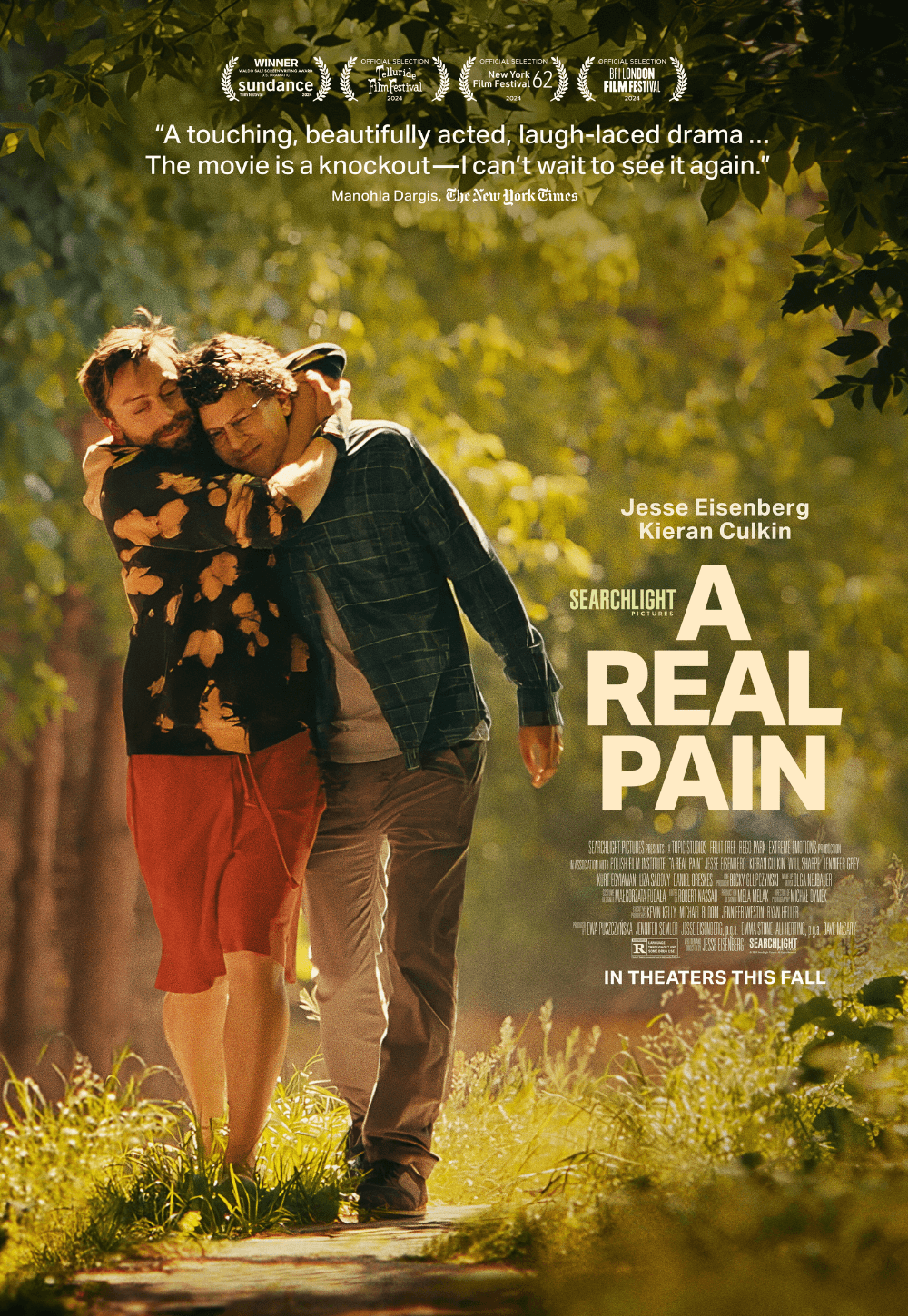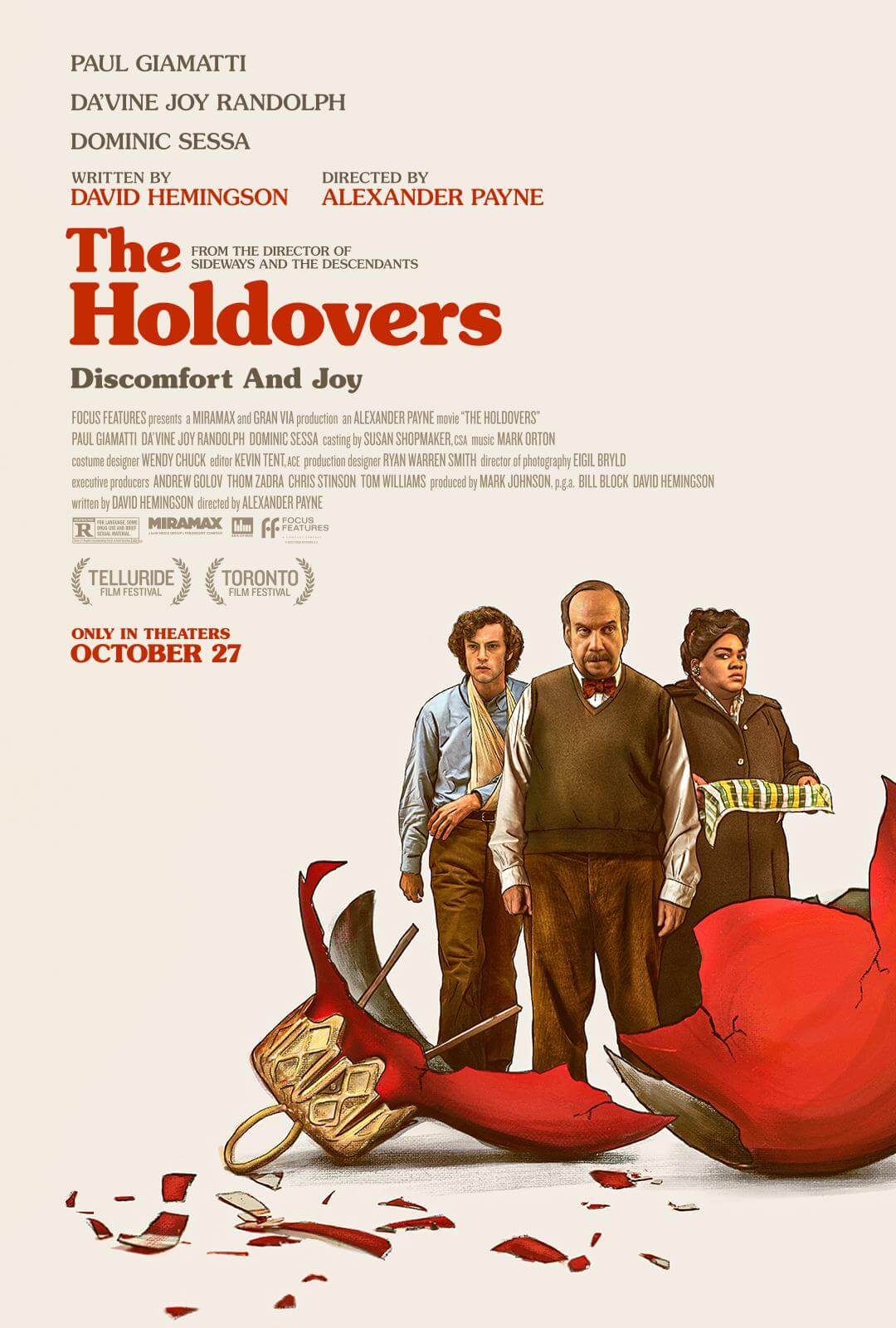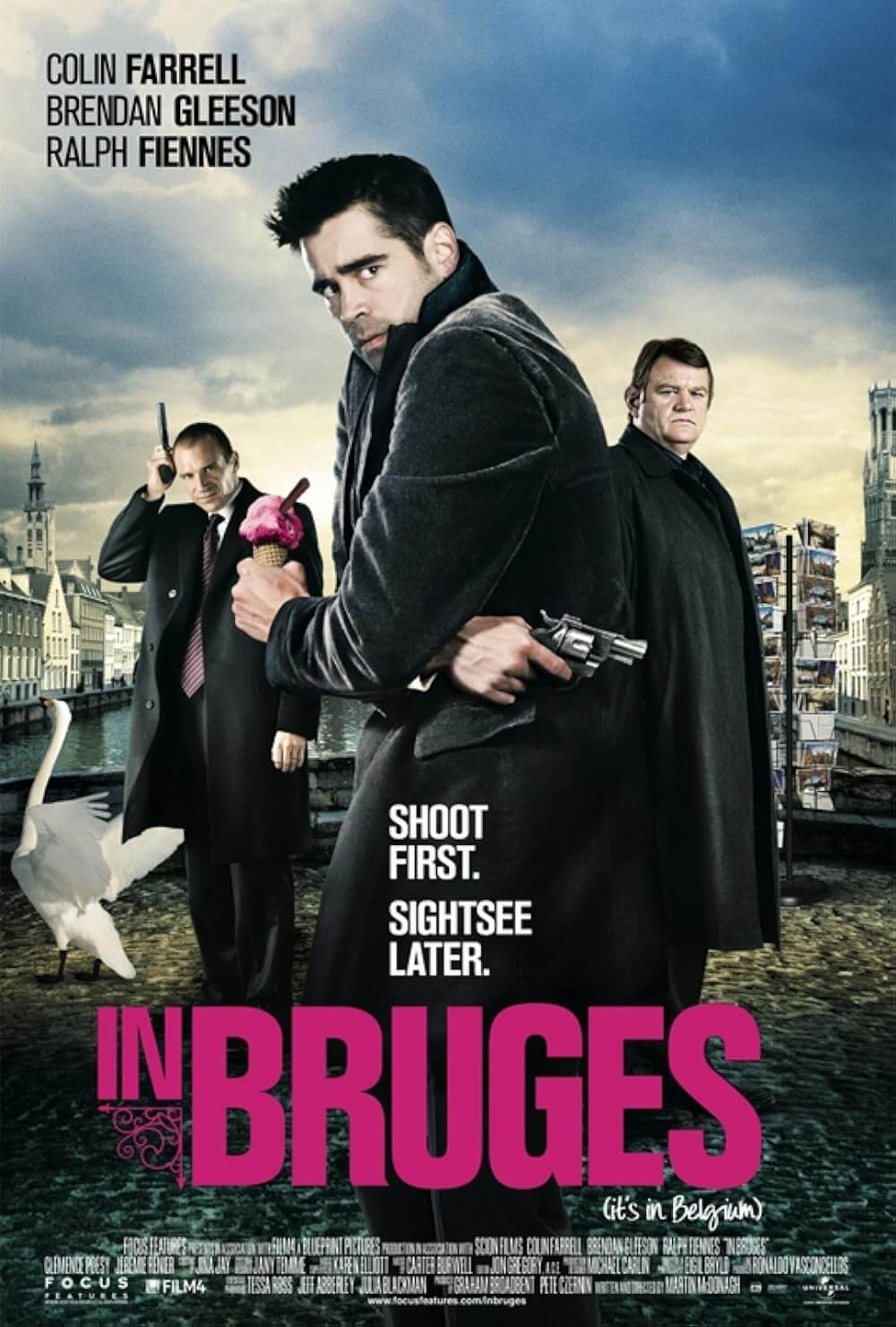
A Real Pain
By Brian Eggert |
Note: This film was screened for the Twin Cities Film Fest. It will open in theaters via Searchlight Pictures on November 1, 2024.
Jesse Eisenberg grows as a writer and director in his sophomore feature, A Real Pain, a film that wears the mask of humor and light accessibility to disguise and complement its deeper themes of existential ache and historical trauma. How fitting, since the two main, odd-couple characters at the center conceal and compartmentalize their turmoil behind their distinct façades. Eisenberg plays David Kaplan, an online ad salesperson with a wife and child, living a life so busy and full of responsibility that his default mode is swallowing his anxiety and OCD to get through his days. Kieran Culkin plays David’s free-spirited cousin Benji, whose chummy, unfiltered humor can take a manic turn into a black depression. Their trip to Poland to visit the home of their late Holocaust-surviving grandmother gives them a chance to reconnect and explore why they’ve grown apart over the years, but it’s also a story about two American Jews putting their European roots up against their comparatively trite problems.
Whenever an actor turns to directing, there’s good reason for skepticism. Too many actors have sat in the director’s chair and proven themselves better in front of the screen than behind it. When a new one comes along, it’s worth asking: Will the result be a vanity project, or does the performer-turned-helmer actually have something to say? In Eisenberg’s case, the actor from The Social Network (2010), Night Moves (2013), and this year’s Sasquatch Sunset has clearly proven his multi-hyphenate abilities. Besides acting in everything from independents to major blockbusters, Eisenberg has already directed a worthwhile feature, When You Finish Saving the World (2023), released by A24 last year. He also contributes to The New Yorker and has written several plays and audiobooks, the themes of which often echo each other, suggesting a distinct voice at work. A Real Pain, for instance, has much in common with Eisenberg’s 2013 play, his second, The Revisionist, about an American writer who visits Poland to see his elderly cousin, a Holocaust survivor.
When Eisenberg first introduces his two main characters, he portrays them as surface-level types: David is a familiar neurotic trope that Eisenberg has been playing for decades and excels at, and Benji is an often inappropriate, sharp-tongued stoner, an echo of Culkin’s character from HBO’s Succession, albeit with a heart. Riotously unpredictable and brutally honest, Benji supplies the pulse of this film. David remains a self-serious type who’s emotionally prepared to take their guided tour through a few of Poland’s wartime landmarks. Led by an Oxford-trained scholar, James (Will Sharpe), whose British mannerisms become a point of contention, David and Benji join a group of fellow tourists: the divorcée Marcia (Jennifer Grey); the older couple Diane (Liza Sadovy) and Mark (Daniel Oreskes); and the Rwandan-born Eloge (Kurt Egyiawan), who converted to Judaism after surviving genocide in his homeland. Benji is a quick study, sizing up everyone on the tour and making the group dynamic a friendly one. But he’s also prone to outbursts. Sometimes, they’re random and funny hot takes (“Money is, like, fucking heroin for boring people.”); sometimes, they’re brought about by the memory of their beloved grandmother; sometimes, he unravels for more complex reasons.

A Real Pain might be accused of deploying a proven, audience-friendly template for indie success, given that the dramedy unfolds with a typical road movie structure reminiscent of many other Searchlight Pictures releases. And for much of the film, that proves true. David and Benji test each other’s patience with their respective quirks, the former weighed down by the trip’s heavy implications, and the latter immune to any awkwardness over his casual humor and instant intimacy with the others in their group. When they visit the Warsaw Uprising Monument, for instance, Benji turns the moment from something disquieting into a scene of unlikely fun, encouraging the others to pose as soldiers. David finds the behavior disrespectful but takes photos with their cameras anyway. However, it’s not all laughs for Benji, evidenced when he snaps at James for oversaturating the group with facts and figures, and when he questions whether they should be sitting in a first-class compartment on a train in Poland—a place where, decades earlier, their train ride might’ve ended at a concentration camp.
Eisenberg demonstrates a masterful control of tone, alternating between levity and somber contemplation. It’s a wonder that his film manages to avoid Benji’s tendency for mood swings and never feels erratic. Instead, A Real Pain has a gentle, observant perspective, occupying that light mode of indie filmmaking that could be accused of having no discernable visual style, apart from being welcoming. Refreshingly, Eisenberg resists accenting his film with a modern soundtrack, relying on classical selections—most notably Frédéric Chopin’s Nocturne in E-flat major, Op. 9, No. 2, played by pianist Tzvi Erez. That piece is somewhat overused in movies, but it’s fitting here, given the Polish-born Chopin’s heritage. The composer’s work was often used in postwar memorials, evoking a sense of loss and suffering inseparable from Holocaust remembrance. Eisenberg uses Chopin to underscore Benji’s amusing behavior in the first scenes, but by the film’s conclusion, both the music and Culkin’s performance have a penetrating melancholy.
Perhaps, in an overfamiliar way, A Real Pain could be reduced to a typical indie about two men on a journey of self-discovery; they face ups and downs, followed by a series of life lessons and emotional revelations. It’s almost a cliché Sundance Film Festival release on paper (it debuted at Sundance). David and Benji argue and have blow-ups on their journey, testing the limits of their relationship, but all’s well that ends well. However, Eisenberg’s material sneaks up on the viewer in how he shows his two protagonists processing their pain—the immediate pain in their lives, as well as the legacy pain of Jewish identity and scars that pass from one generation to the next. The two actors give performances that rank among their best, with Culkin’s careful calibration of brashness and vulnerability delivering a massive blow in the final, wounded shot. Eisenberg taps into a profound range of humanity and emotion here, with a film that’s entertaining and funny but also aches in a way that proves unshakable for long afterward.

Thank You for Supporting Independent Film Criticism
If the work on DFR has added something meaningful to your love of movies, please consider supporting it.
Here are a few ways to show your support: make a one-time donation, join DFR’s Patreon for access to exclusive writing, or show your support in other ways.
Your contribution helps keep this site running independently. However you choose to support the site, please know that it’s appreciated.
Thank you for reading, and for making this work possible.
Brian Eggert | Critic, Founder
Deep Focus Review







